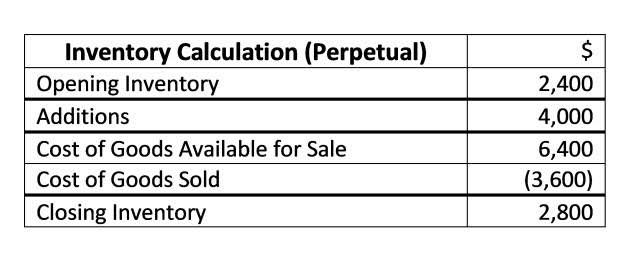
Doing so will save you time and effort and ensure that your books are in good hands. Of course, this process is tedious, but seeking help from outsourced accounting professionals can help you to identify errors that you may have made in previous steps. The professionals fix any errors, ensuring the balance in your bank statement reconcile with the balance in your company records. Think of software like QuickBooks, Xero, or FreshBooks as your personal assistants for managing your bookkeeping paperwork, including tax preparation. They track income and expenses and can generate financial statements.

Regardless of your small business’s complexity, bookkeeping will still take time out of your week, so be sure you have the resources before committing to handling it yourself. Bookkeeping, in large part, has to do with accurate recordkeeping. This means recording transactions and saving bills, invoices and receipts so you have all the data you need to run reports.
Step 3: Reconcile your bank accounts
Even if you decide to hire catch up bookkeeping services, having digital records will vastly improve the accuracy of your financial accounts and reduce the potential for errors. If you need help maintaining your books, Ledger Labs offers various ongoing bookkeeping services. We can help you with everything from recording your transactions to preparing your financial statements. Additionally, if you started a new vertical in your business, you may want to track their profitability separately; then, you also need to realign your numbers to reflect the new reality. Ensuring that all financial records are current and complete is crucial as part of the clean-up bookkeeping process. Reconciling receipts for all modes of payment is essential for accurate bookkeeping and reporting.

At Xendoo, for example, we can sync with such popular software as Gusto, Stripe, Intuit QuickBooks, and more. Relying on these digital solutions can make it easier to maintain your books, reconcile your accounts, and ensure precision and accuracy for all of your financial processes. These receipts will also be useful during tax season, providing a record of any business expenses that can be used as tax deductions. The catch up bookkeeping amount of time it takes to get caught up with your bookkeeping will depend on how inaccurate your current financial records are and how far behind you are. This can drastically reduce the amount of time and effort it takes to find and remedy accounting errors, but it can also be used to speed up bookkeeping processes. Reconciling your bank accounts is important for identifying errors in your company or bank records.
Regain Financial Control with Catch-up Bookkeeping Handbook
Mingling business and personal expenses is common among small and medium business owners, making the bookkeeping process more complicated. Bookkeeping cleanup starts with the collection of the receipts, invoices, bank statements, expense reports, and other relevant financial documents. Diligent analysis of these documents will help you understand how the financial activities were conducted throughout the year. It involves catching up on accounting tasks that have been neglected or delayed. One of the main reasons why catch-up accounting is important is to avoid penalties. If you fail to file your tax returns or pay your taxes on time, you may face penalties and interest charges.
- Plus, you’ll be able to access your bookkeeping records from anywhere.
- We’ll help you to get caught up and give you the tools to remain current on your books in the future.
- Now that we’ve covered some common scenarios where catch-up bookkeeping is needed let’s look at when your business might need it.
- Catch up bookkeeping is a financial service that is specifically designed for companies that need to get their books in order as quickly as possible.
- Catching up on your accounting tasks can help you avoid such penalties and keep your business in good standing.
- As a small business owner, you’re likely wearing many hats—juggling everything from product sourcing to inventory management, front-end work, human resources, marketing, and more.
- In this situation, seeking assistance from a professional catch-up bookkeeper is crucial.
If your business uses an accrual basis accounting method, you record the amount in your books the moment the sale occurs, even if you haven’t received the cash yet. Say you made a $1000 sale in October 2020, but you weren’t paid until February 2021. Once your bank accounts have been reconciled and any adjustments made in your recording tool of choice, you’ll want to close the month and print financial statements. The best way to manage this regularly is to do a monthly reconciliation to identify any mismatched or missing transactions. So once you catch up on your books, continue to reconcile your bank statements each month.
